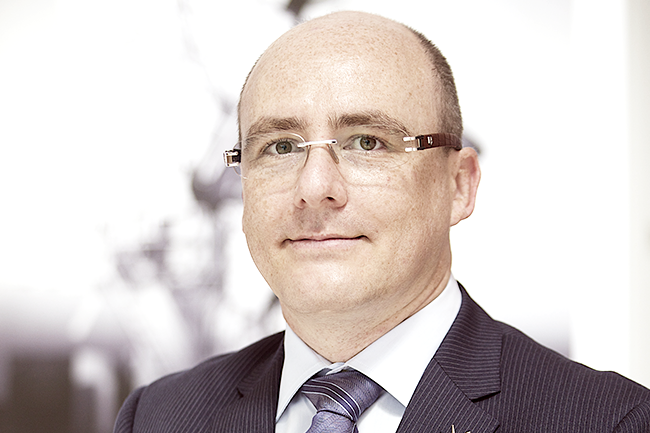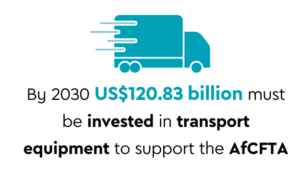In Africa, the social and economic benefits of broadband and the internet might be almost impossible to measure given that more than 1 billion people still reside in rural areas. That a broader reach will change those lives is indisputable, especially now that Yahsat, the world’s seventh-largest satellite operator in terms of revenue, is on the threshold of making one of the biggest impacts of connectivity on the continent, with the launch of its third satellite, Al Yah 3, and expanding its YahClick service into an additional 19 countries in Africa from the existing eight countries it already covers through the Y1B satellite.
In some respects Yahsat’s growth has paralleled the decade-long intensive demand for data in Africa, resulting from the prolific growth of smart devices and flurry of new investment. In its ninth year of operation and with just two satellites, Yahsat’s global 140-country coverage has been providing multi-purpose satellite solutions for broadband, broadcast and communications use throughout the Middle East, Europe, Central and Southwest Asia and Africa.
Based in Abu Dhabi, UAE, and wholly owned by Mubadala Development Company (the investment vehicle of the government of Abu Dhabi), Yahsat is the first company in the Middle East and Africa to offer multipurpose Ka-band satellite services.
It has four dedicated products: YahClick (satellite broadband for home and business); YahService (managed solutions); YahLink (IP trunking solutions, corporate networking and backhauling capacity); and YahLive (a joint venture with SES, for broadcasters and TV channelling).
‘To support African countries in their growth and development strategies, we believe satellite broadband internet is the way forward’
David Murphy, Yahsat’s chief commercial officer, explains why the launch of Al Yah 3 next year is a game changer, particularly for its YahClick service – not to mention the Africans and Brazilians who will use it. First, however, a little background…
‘The introduction of Ka satellite services in Africa, in 2012/13, has stimulated the VSAT [very small aperture terminal] industry across the continent,’ says Murphy.
‘Ka-band has recorded double-digit growth year on year, with satellite broadband providers increasingly posing more competition for terrestrial internet providers. Satellite services, as a result, are becoming easier to set up and offer significantly more reliable services.’
Ka-band has been valuable to Yahsat in the way it uses multi-spot beams, with reusable frequencies that in turn provide increased satellite capacity at a lower cost. In Yahsat’s case, these are passed onto the client through a range of service plans that focus on speeds, prices and service levels tailored to meet the requirements of myriad customers, and which explains why YahClick is positioned as the preferred satellite broadband service in Africa.
The launch of the Al Yah 3 satellite will expand Yahsat’s commercial Ka-band coverage with the expectation of reaching 60% of the continent’s population. Brazil is also a beneficiary, as the new satellite will provide connectivity to more than 95% of that nation’s population.
‘Yahsat focuses on providing unfailing connectivity to users in underserved and unserved areas,’ says Murphy.
‘In order to support African countries in their growth and development strategies, we believe satellite broadband internet is the way forward, particularly while plans for traditional infrastructure are being finalised.’
Not having adequate terrestrial infrastructure, or even the capacity to build it, is one of the biggest challenges for Africa and why the YahClick offering is particularly appropriate for the continent.
Currently, connecting to Yahsat’s Y1B satellite, users require a small receiver dish and modem, which completely eradicate last-mile connectivity issues, such as cable interferences, dial-up modem instability and traditional service provider crashes. Nor will weather conditions affect the connection, given that state-of-the-art technology adjusts power requirements to ensure that links are maintained and not interrupted.
YahClick data packages, for home and commercial use, include Lite (up to 10 GB); Empower (up to 30 GB); and Premium (up to 200 GB). An added support enhancement is YahClick Insure, which is a pay-as-you-go package that enables clients to pay only for the days of usage.
‘At present, our YahClick internet service provides affordable high-speed internet access to both rural and urban customers. It guarantees a 99.5% uptime that equates to approximately eight hours of downtime per year, which is favourable against other broadband alternatives on the market,’ says Murphy.
The process comes together through an invaluable network of partnerships. ‘We work closely with our service partners to deliver unparalleled services to clients,’ he says.
‘Partners offer user hardware and satellite internet service plans that are tailor-made for their specific markets and user segments. This can range from basic internet access for a home user to high-speed internet service plans for the business market.
‘Our selection process for partners is based on their understanding of unique local requirements and the socio-economic landscape. Such strategic partnerships enable us to provide the fast and efficient communications we desire and aspire to in many regions where the demand for reliable internet is constantly in demand.
‘Each of our partners are fully trained by Yahsat and our ground equipment supplier, Hughes Network Systems, to ensure a comprehensive understanding of customer enquiries, sales, installation, billing and customer care.’
‘We’ll be opening the door to untold numbers of new business opportunities with our increased coverage and connectivity, especially for crucial industries’
Kevin Viret, Yahsat’s business development director for Africa, adds that the ultimate goal for YahClick is to gauge and address consumer needs.
‘We will do this by delivering reliable and cost-effective broadband directly or indirectly to over 600 million users in Africa and Brazil, which effectively translates into 20 new markets,’ he says.
‘The impact is that we’ll be opening the door to untold numbers of new business opportunities with our increased coverage and connectivity, especially for crucial industries such as healthcare, oil and gas and financial services. The home user will also benefit enormously, particularly given the high bandwidth that stretches to even some of the most remote communities.’
The education sector will be a considerable beneficiary. Viret says that limited internet infrastructure, coupled with negligible resources available to build, staffing issues and the difficulties of operating schools in rural communities, be that on- or off-line, continues to present generations with educational disparities across continents.
‘Rural schools, learning centres and small colleges have a pressing need for internet connectivity in order to keep up with international standards.
‘This is where YahClick excels, in providing instant connectivity and cost-effective internet access to enhance learning institutions in even the most remote environments. This also applies to the agricultural sector in facilitating the sharing of knowledge, the consequence of which leads to enhancements in cultivation methods. Currently, over 3 000 farmers are using our services in South Africa alone where we were named Best Satellite Provider in Africa at SatCom in 2014.’
Yahsat, however, isn’t concerned only with service delivery – it also considers delivering a positive impact, be that for its stakeholders or wider population.
Last October in Geneva, together with several peers under the umbrella of the EMEA Satellite Operators Association and the Global VSAT Forum, Yahsat signed the Crisis Connectivity Charter with the global humanitarian community, which is represented by the UN’s Office for the Co-ordination of Humanitarian Affairs and the Emergency Telecommunications Cluster.
‘The charter embodies a commitment from the satellite community to enhance connectivity in humanitarian emergencies, and formalises terms and protocols designed to accelerate the ability of emergency response teams to access satellite-based communications when local networks are affected, destroyed or overloaded after a disaster,’ says Murphy. ‘Over time, we look forward to being able to initiate more partnerships to provide humanitarian aid and give back to society, particularly in Africa where such challenges still remain.’
















